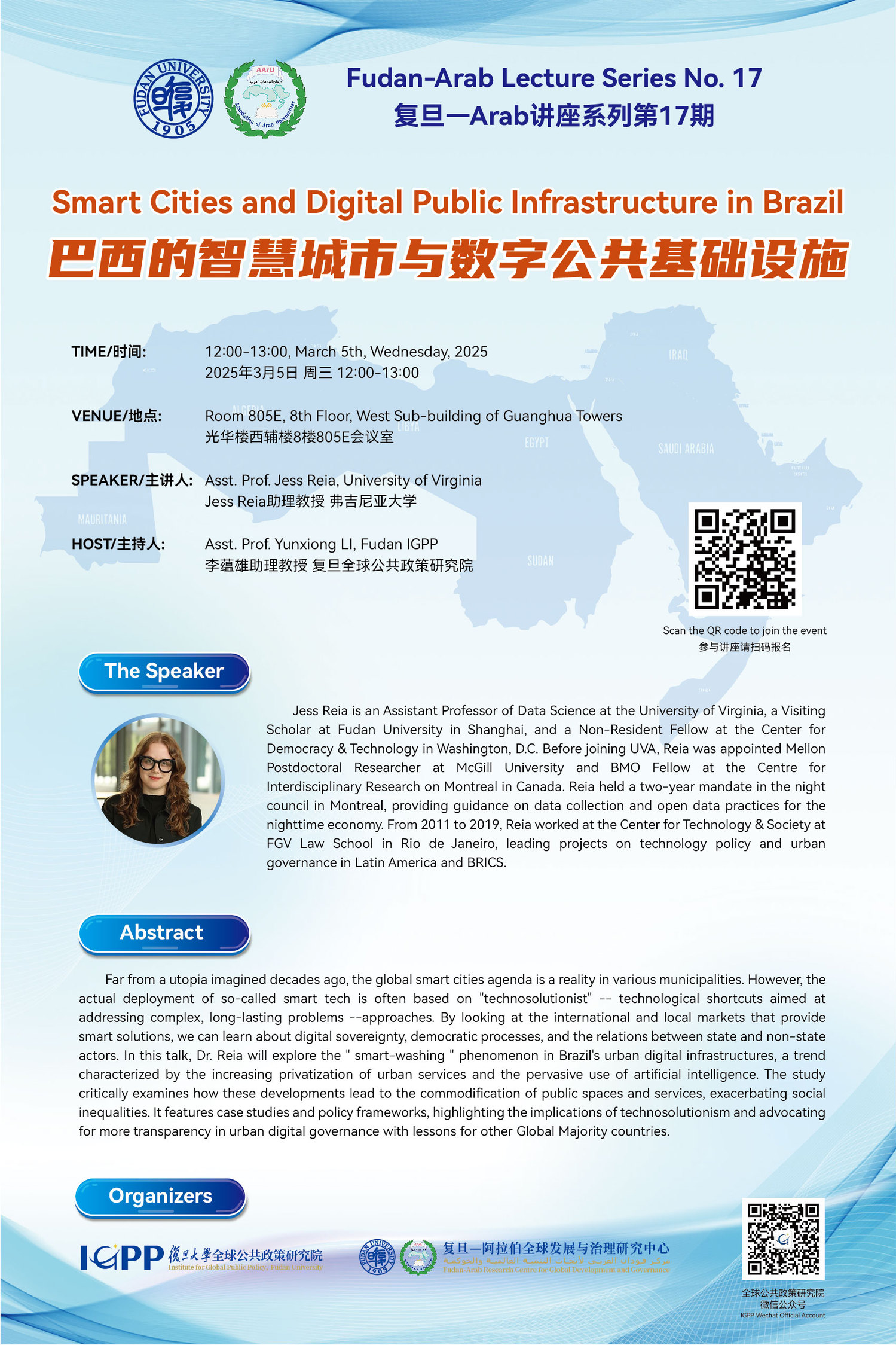
Fudan-Arab Lecture Series No.17
Title:
Smart Cities and Digital Public Infrastructure in Brazil
Speaker:
Asst. Prof. Jess Reia, University of Virginia
Host:
Asst. Prof. Yunxiong LI, Fudan IGPP
Time:
12:00-13:00, March 5th, Wednesday, 2025
Venue:
Room 805E, 8th Floor, West Sub-building of Guanghua Towers
https://www.wjx.cn/vm/exjJHnF.aspx#

The Speaker:

Jess Reia is an Assistant Professor of Data Science at the University of Virginia, a Visiting Scholar at Fudan University in Shanghai, and a Non-Resident Fellow at the Center for Democracy & Technology in Washington, D.C. Before joining UVA, Reia was appointed Mellon Postdoctoral Researcher at McGill University and BMO Fellow at the Centre for Interdisciplinary Research on Montreal in Canada. Reia held a two-year mandate in the night council in Montreal, providing guidance on data collection and open data practices for the nighttime economy. From 2011 to 2019, Reia worked at the Center for Technology & Society at FGV Law School in Rio de Janeiro, leading projects on technology policy and urban governance in Latin America and BRICS.
Far from a utopia imagined decades ago, the global smart cities agenda is a reality in various municipalities. However, the actual deployment of so-called smart tech is often based on 'technosolutionist' -- technological shortcuts aimed at addressing complex, long-lasting problems --approaches. By looking at the international and local markets that provide smart solutions, we can learn about digital sovereignty, democratic processes, and the relations between state and non-state actors. In this talk, Dr. Reia will explore the ' smart-washing ' phenomenon in Brazil's urban digital infrastructures, a trend characterized by the increasing privatization of urban services and the pervasive use of artificial intelligence. The study critically examines how these developments lead to the commodification of public spaces and services, exacerbating social inequalities. It features case studies and policy frameworks, highlighting the implications of technosolutionism and advocating for more transparency in urban digital governance with lessons for other Global Majority countries.





